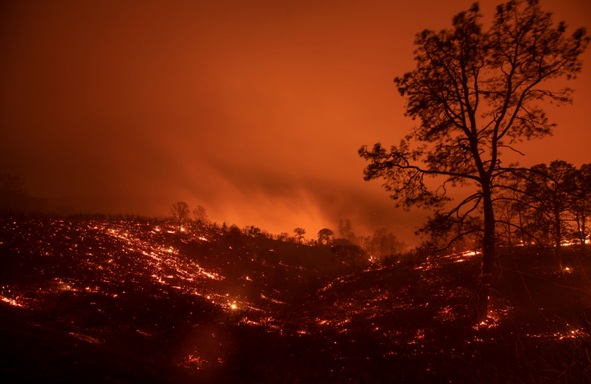Mark Twain National Forest successfully utilizes prescribed fires
Helps firefighters stop bad, unplanned wildfires . . .

ROLLA, MO (May 3, 2022) – April showers bring more than May flowers to the Mark Twain National Forest: They also bring the end to the winter fire season.
The dry weather of winter and early spring can provide the perfect conditions for forest managers to use prescribed fires as a tool for forest restoration.
Since October of 2021, firefighters from the Mark Twain National Forest treated more than 47,000 acres using prescribed fires. During that same period, personnel responded to and put out more than 50 wildfires across the Forest. Ensuring that good, prescribed burns occur as much as possible helps firefighters when it is time to stop the bad, unplanned wildfires
Prescribed fire is a fire intentionally set in a specific pre-planned area to accomplish established management goals. On landscapes across southern Missouri, the Mark Twain National Forest uses prescribed fire for forest restoration.
Over 250,000 acres of the forest are designated for the use of prescribed fire, which helps create natural woodland and glade ecological communities, and increases the abundance of native wildflowers and grasses. In turn, restoring the diversity and abundance of plants results in ideal habitats for many species native to Missouri, including popular game species like white-tailed deer and wild turkey. Areas treated with prescribed fires have a lower risk that out-of-control wildfires will cause harm to natural resources or local communities.
The restoration work using prescribed fire takes months of planning and coordination, and additional support from resources and personnel from across the country. This is the third year that firefighters on the Umatilla Veterans Crew (UVC), based out of Ukiah, Oregon, have worked alongside Mark Twain National Forest firefighters.
The benefits of working with UVC firefighters are two-fold: they help Mark Twain National Forest meet fire management objectives and they also mentor and train local Mingo Job Corps Civilian Conservation Center students (MJCCC).



